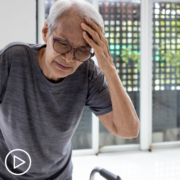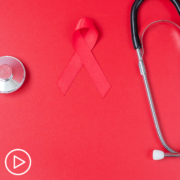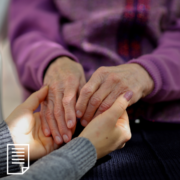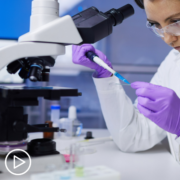Treating Relapsed/Refractory DLBCL
Treating Relapsed/Refractory DLBCL from Patient Empowerment Network on Vimeo.
What are the options for DLBCL patients who relapse? Dr. Jane Winter shares treatment options for relapsed/refractory DLBCL and what is available for patients who have coexisting conditions or health concerns.
Dr. Jane Winter is a hematologist and medical oncologist at Robert H. Lurie Comprehensive Cancer Center at Northwestern University. More information on Dr. Winter here.
See More From The Pro-Active DLBCL Patient Toolkit
Related Programs:

|

|
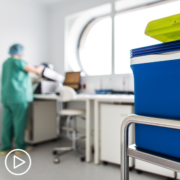
|
Transcript:
Laura Beth:
Dr. Winter, if a DLBCL patient doesn’t respond to treatment or relapses, what happens next? Are there additional treatment options available?
Dr. Winter:
Absolutely, but we have some very new treatments and some new data that’s just been within the last year. So, I had mentioned earlier with regard to follicular lymphoma this CAR T-cell therapy. So, CAR T-cell therapy is now approved for certain patients who relapse. So historically, in the past, patients who were young enough and robust, healthy enough to consider what we call an autologous stem cell transplant, so, high doses of chemotherapy with stem cell rescue was the standard of care for many years. But many patients would not be eligible for that kind of therapy, first, because they were too old or they had too many medical problems, what we call comorbidities.
But also, because in order to have a good outcome with this kind of treatment, we need to first get the disease into remission, and that can prove challenging. So, for many years, though, what we call autologous stem cell transplant was the standard of care. But a disease that is most common in people in their mid-60s and above, this was not an option for many patients, but also, many patients just never became eligible because their disease was too difficult to control. And so, in recent times, over the past six years or more, a new therapy called CAR T-cell therapy has emerged.
This harnesses the patient’s own T cells. The T cells are collected from the blood stream, and then they are genetically engineered so that they target the marker on the lymphoma cells. It takes about three weeks or so to go through the process of altering these cells and creating these CARs, and then re-infusing them back into the patient now targeting the patient’s lymphoma. And, this is a therapy that’s incredibly promising.
It was approved a while ago for patients in the third line, meaning if your disease came back after your first treatment, let’s say, R-CHOP, and then you receive second line treatment, but that treatment didn’t really work, you were a candidate for CAR T-cell therapy. And about 35 to 40 percent of patients would do very well with that therapy. It’s not a hundred percent, but still, it was a very good option for individuals. Now, we have clinical trials comparing patients who relapse. So, at the time the first relapse, if that relapse occurs within a year or the patient progresses while on initial treatment, CAR T-cell therapy has been shown to be better than the old standard of care, which was the second line of treatment in the stem cell transplant.
So, we now have this very promising new strategy for patients as well as for a subset of patients who are not eligible to go on to conventional autologous stem cell transplant because they’re too old or they’ve got a heart disease or some other comorbidity that makes them not a candidate for a standard stem cell transplant. So, this is very exciting and is approved for patients with relapsed disease, or refractory disease, or disease that progresses during initial treatment, or recurs within a year as well as this group of patients who are either too old or too sick to have an autologous stem cell transplant.
But, there are many new iterations, new variations on this theme that are under investigation right now. So, there are lots of clinical trials to consider for a patient with relapsed disease or refractory disease because we have new versions of CAR T-cell therapy that are under investigation as well as a whole list of new agents, targeted agents and what we call bite antibodies and so on.
So, things are very promising and there’s a tremendous amount of research going on right now, much of it translating into improved responses and survival for patients with diffuse large B-cell lymphoma.


